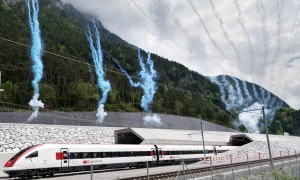🕑 Reading time: 1 minute
Alternative dispute resolution is a combination of techniques implemented for resolving disputes in a construction project, without seeking any rectification from the courts. This is more prominently found in countries like India, Germany where a set of resolution processes called the alternative dispute resolution techniques act as the main means and mode between the dispute creating parties (disagreeing parties) to end up with a solution through a written contract or agreement. Alternative dispute resolution is a collective means of sorting and settling disputes happening with or within different parties in an organization.
Contents:
History and Features of Alternative Dispute Resolution (ADR)
The techniques of alternative dispute resolution were originated in Unites State in the year 1970. It has been developed as an after effect of dissatisfaction of traditional method of litigation, which was performed for resolution of disputes. The increasing costs, delays, and uncertainty with the increase in the volume of these construction dispute litigation was the motivating factor behind the development of ADR. Before the entry of alternative dispute resolution techniques, arbitration and dispute boards were the two forms used to bring resolution for disputes caused. These methods at that time became commonly employed in international projects especially for those that employs FIDIC contracts. The methods possess well documented strength and any one of the two would have bought a solution for a dispute. But with time, problems relating to the time consumption of arbitration method and cost of maintenance of dispute board became increasing. This has then led to come up with certain specific ADR techniques.Processes of Alternative Dispute Resolution Techniques
The ADR processes and techniques will come under any one of the two main categories. They are:- Adjudicative ADR
- Non-Adjudicative ADR
Adjudicative Alternative Dispute Resolution Techniques
The adjudicative ADR comprise an individual who is a third party, who deals with the decision on dispute merits. The Non adjudicative will assist the parties involved in the dispute to negotiate with each other to end up with a settlement. The above mentioned initial technique of arbitration and dispute boards comes under the category of adjudicative ADR. Another example is a combination of Mediation / arbitration technique.Non Adjudicative Alternative Dispute Resolution Techniques
Unlike adjudicative ADR, the non adjudicative ADR have many numbers of alternatives of which some are mentioned below. These processes help to bring some flexibility in the use of an alternative. Some of them are:Mediation in Alternative Dispute Resolution Techniques
In this kind of alternative, a negotiated agreement is facilitated by a neutral third party between the disputing parties. Now, this third party has no power to make decisions. The third party or the mediator notes down all the merits and demerits of the dispute but does not bring up a decision or suggest one. He might bring an indication on who have the strongest merit to win the negotiation, which is considered by the court or the arbitral tribunal. The main role of the mediator is to determine the area where both the parties can compromise with each other. When the discussion goes well and is ready to have a settlement, this forms the negotiation of an agreement. The "mediation from mere negotiation" is the criteria carried out by the mediator or the process of dispute resolution. The mediation alternative followers have the opinion that this method understands and reduces the dispute reasons and future disputes, through open communication between the parties.Conciliation
This method involves the entry of conciliator who is supposed to lead the negotiations to be carried out in a smoother way and to facilitate their negotiations. They don't involve in dealing or hearing the issues between the parties.Early Neutral Evaluation
This is a non binding process. To provide an evaluation, based on the merits of the case, any or both the disputing parties will own a credible neutral party. The method must be implemented at an earlier stage to avoid the possibility of major cost, which reflects the name "early" neutral evaluation. The neutral party only has a role in guiding the parties through the issue and have no role in binding. After which, they can have negotiations alone thereafter. This method turns out to be "non-binding arbitration" when this approach has to face a formal hearing. This may be closely related to arbitration.Mini Trial
This is one alternative which has the greatest use as a dispute resolution. This involves complex questing based on laws and facts. Each part will present the case in an abbreviated form. For these, they seek lawyers or experts. The case is placed on the senior management of the parties for hearing. After hearing a negotiation is carried out by the respective management system. This method will help the disputing parties to see the problem and after effects of the problem from outside perspective, to make them understand the severity and potential impact so that an easy settlement can be made. If necessary, a neutral party may be employed so that action will be facilitated and evaluated based on the needs of the parties. Good understanding of the issues by the two parties is necessary for this method of mini trial to be effective and appropriate. It's not possible to conclude that a single form of litigation or alternative dispute resolution method is a perfect choice of dispute resolution for all situations. The construction industry has resulted in bringing up a wide variety of ADR processes that are worth.Silent Features of Alternative Dispute Resolution Techniques (ADR) in Construction Projects
The alternative dispute resolution techniques in construction involves certain construction contracts that are granted for disputes that must be dealt with a set of agreed dispute resolution procedures. The most common and famous alternative dispute resolution processes used in construction disputes other are mentioned below.
The most common and famous alternative dispute resolution processes used in construction disputes other are mentioned below.
- Adjudication
- Expert Determination
- Litigation
- Meditation
- Arbitration
Adjudication
As explained below adjudication involves the incorporation of a third party to give a decision on the dispute. Now the method is known as "pay first, argue later ", a method of dispute resolution. For this, the party must apply to the technology and the construction court so that the adjudicator's decision can be enforced. The adjudicator's decision will be binding until it is not revised by litigation or arbitration. These have certain benefits and demerits.Benefits of Adjudication in Alternative Dispute Resolution
- Adjudicator won’t be involved in day to day running of construction contract
- An adjudicator is a neutral person
- Adjudication is a quick process
- The cash flow is maintained throughout construction process
- It is less expensive than court methods
Demerits of Adjudication
- Before the commencement of adjudication, the dispute have to be aired between the disputing parties
- The adjudicator have limited power
- If the part who loses does not pay, court proceedings are necessary to enforce the decision of the adjudicator.
Expert Determination
Whenever there is a valuation dispute, we go for expert determination. These deals with disputes of special nature like construction disputes. The expert determination forms one of the informal system methods of resolution of disputes. The parties must agree to accommodate the expert determination through an agreement (contract) and agree that the expert determination will be binding.Benefits of Expert Determination
- Less economic way
- Less expensive, quick method and less formal
Demerits of Expert Determination
- Expert decision less tied to legal processes
- Enforcement of expert report cannot be carried out without court or arbitration
Litigation in Alternative Dispute Resolution Techniques
Among different methods of ADR processes, the court proceedings are the common method used to solve the construction industry disputes. The Technology and the construction court (TCC) is a court that is specialized in the same. They govern and deal not only civil procedure rules but also TCC guide. The cases in TCC will be dealt with judges specialized in TCC.Advantages of Litigation in Alternative Dispute Resolution
- The judge carry out the claiming process throughout
- Complex issues can be carried out and dealt
- Binding and enforcement of decision for the parties are obtained
Disadvantages of Litigation
- The method is a slow process
- Most expensive
- The proceedings relating to the dispute will not be confidential.
Mediation in Alternative Dispute Resolution
The method of mediation as explained before is a common method used to resolve disputes. The TCC court states that the parties with a disputed issue must be encouraged to go for ADR methods for solution. In most of the cases, the solution will be mediation.
Benefits of Mediation
- The mediator will be an intermediate person, who have no judgment or decision making. He just facilitates the discussion
- Mediators are experienced in dispute areas and with the judges of TCC
- The business relationship can be maintained
- Mediation can go long for one to two days, bringing the decisions quickly
- The happenings within the mediation are kept confidential
- The mediator will help the parties to bring up a decision which is favorable for both the parties.
Disadvantages of Mediation
- Disclose of an important aspect related to their argument, may result in benefiting the other part
- The dispute will remain unsolved if no sort of agreement has been made. The cost for mediation will go futile.
Arbitration in Alternative Dispute Resolution
This method is another form of litigation. Here the disputing parties will refer the dispute to a third party. He is called as the arbitrator. The material facts, documents and relevant principles of law are the basis for which the disputes are solved. This method is used mainly for international construction disputes.Benefits of Arbitration in Alternative Dispute Resolution
- Arbitration is a confidential process
- Based on the experience of the arbitrator, the parties can choose them.
- Arbitration, unlike court proceedings, is a quick process
- The method of arbitration is a flexible process
Disadvantages of Arbitration
- The cost of arbitrator and arbitration venue must be taken by parties
- An arbitrator has limited power to take the decisions.
- Arbitration possess limited appeal rights
- Cost will be similar to court litigation



